 myCSUSM
myCSUSMPast Events
Fall 2023
Putting Nowhere on the Map: Archaeological Investigations of a “Vacant” Ancestral Maya Landscape in Central Western Belize.
Speaker: Associate Professor of Anthropology Jon Spenard, Ph.D.
Date: Thursday, November 9th, 2023- 5:00pm to 8:00 pm
Location: CSUSM McMahan House
Central western Belize is one of the most comprehensively documented archaeological regions of the ancestral Maya world. Research has revealed dozens of past population centers underneath which run hundreds of ritual cave sites. In its center sits the Mountain Pine Ridge. A few ritual cave sites are known along its edges, but due to its unique geology that is prohibitive to farming, archaeologists have always considered it a vacant region of little archaeological interest.
In 2018, I was granted permission by the Belize government to initiate my Rio Frio Regional Archaeological Project to study the Mountain Pine Ridge and locate any sites that may remain undocumented there. That project found much more than we ever anticipated. In this talk, I detail what we have learned about the surprisingly rich archaeology of the Mountain Pine Ridge, and the implications the research has for the field of Maya archaeology
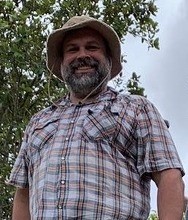
Spring 2023
Let Me Tell You A Story: Lessons From HIV to COVID-19 Pandemics
Speaker: Andrew Spieldenner, Associate Professor, CHABSS Communication
Date: Tuesday, April 4, 2023 from 5:00pm - 8:00pm
Location: CSUSM McMahan House
Stories matter: the ways we share our experiences can change the world. My research is qualitative and engaged with HIV and LGBTQ communities. After four decades of HIV, the LGBTQ community experienced some key issues that resonated in COVID-19. Through stories from my work, I will outline three lessons from HIV: managing risk; governments and systems fail; and touch is important. I will close with how building community is vital for our survival.
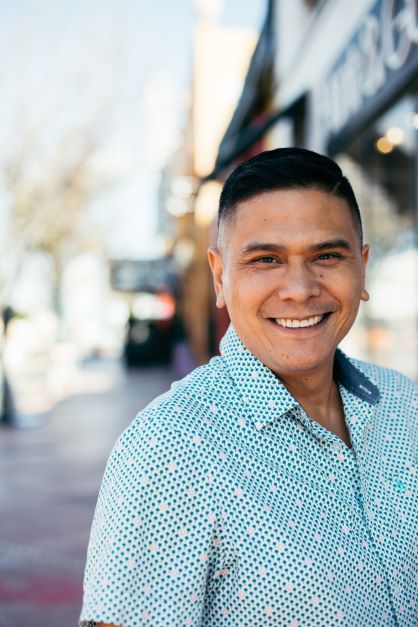
Fall 2022
Inclusive Post-Secondary Education Programs for Students with Intellectual & Developmental Disabilities
Speaker: Rebecca Brooks, Associate Professor, CEHHS School of Education
- Date: Thursday, November 10, 2022 from 5:00pm - 8:00pm
- Location: CSUSM McMahan House
Inclusive Post-Secondary Education (IPSE) programs create a pathway for students with intellectual and developmental disabilities (I/DD) to be successfully included on college campuses. These programs provide inclusive academic enrichment, social opportunities, career exploration, and work experiences that are essential for students to reach their fullest potential, enhance their quality of life and contribute to their community. Alarmingly, only 298 of more than 4,300 degree-granting institutions in the United States offer programs for students with intellectual disabilities (Think College, 2022). Currently, there are only five 4-year universities in the state of California that offer IPSE programs. These programs have dramatically improved employment outcomes for adults with I/DD with 51-96% of IPSE graduates in competitive integrated employment (CIE) (Avellone et al., 2021) compared to less than 2% of adults with I/DD in CA (SCDD, 2015). Therefore, it is critical that more programs be developed and offered to students. In collaboration with local agencies and other universities across California, an IPSE pilot program at CSUSM is being created. An IPSE program will not only increase academic, social, and employment opportunities for students with disabilities, it will also benefit the entire student body and campus community.
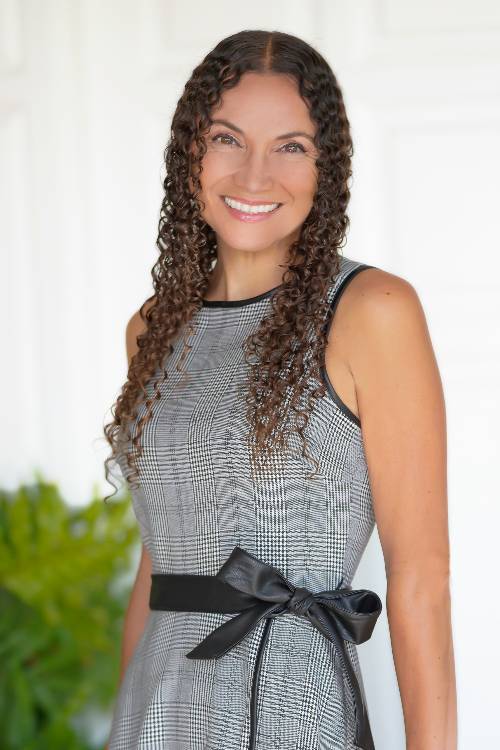
Spring 2022
Rethinking African Immigrants’ Identity Negotiation Theorizing in Transnational Context: A Decolonial Approach
Speaker: Gloria Pindi Nziba, Ph.D., Associate Professor of Communication
- Date: Tuesday, April 26, 2022 from 5:00pm - 8:00pm
- Location: CSUSM McMahan House
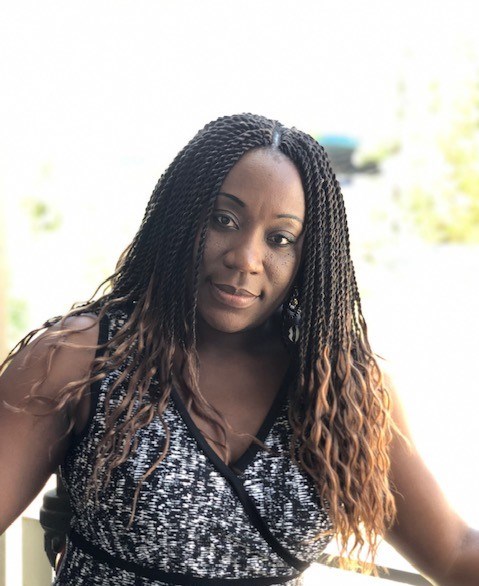
Spring 2021
Building a Sustainable Maker-based STEM Teaching and Learning Ecosystem in North County San Diego through University-Community Partnership
Speaker: Sinem Siyahhan, Ph.D., Associate Professor of Educational Technology
- Date:Tuesday, April 6, 2021 from 4:30pm - 6:00pm
- Location:Via Zoom
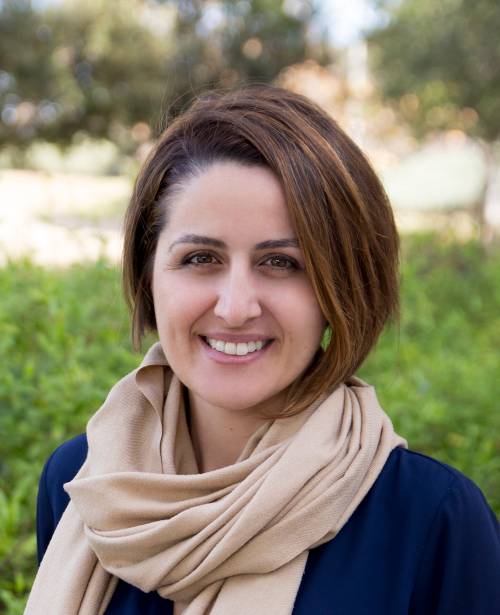
In this presentation, I will share the research findings and lessons learned in the last four years from the iTeachSTEM program that brings together teaching, learning, research, and community engagement. Early Science, Technology, Engineering, and Math (STEM) experiences in elementary and middle school lay the foundation for the development of STEM interests and skills that are necessary for STEM learning in high school and beyond. Unfortunately, research suggests that students of color and those from underserved communities are less likely to have access to quality STEM learning experiences. At the same time, while K-8 teachers must be prepared to incorporate STEM teaching strategies and practices into their classrooms across different content areas, they consistently report a lack of confidence and low self-efficacy in their ability to teach STEM. To address these problems, I have redesigned the EDUC422 Teaching, Learning, and Technology course to include service-learning where undergraduate students (mostly teacher candidates) learn and implement maker-based STEM activities that foreground technology and engineering with children at school sites. Over the last four years, I scaled the impact of the program from serving 6 schools to 24 schools per semester (approximately 420 children) while supporting undergraduate students in developing their skills and confidence in teaching STEM (120 undergraduate students per semester). In Fall 2020 due to the COVID-19 pandemic, the course and afterschool programming moved online. In my presentation, I will share the theoretical and pedagogical frameworks that guide the design of the course and STEM activities, the findings from data collected from children and undergraduate students over the years, as well as how moving the program online introduced challenges and provided new opportunities for teaching and learning. Implications for broadening participation in STEM, community outreach, and service-learning will be discussed.
Fall 2020
The Wholehearted Actor: The Understanding and Commitment of Yourself to the Craft of Acting
Speaker: Judy Bauerlein, Ph.D., Full Professor, Theater
Date: Wednesday, October 28, 2020, from 4:30pm - 6:00pm
Location: Via Zoom
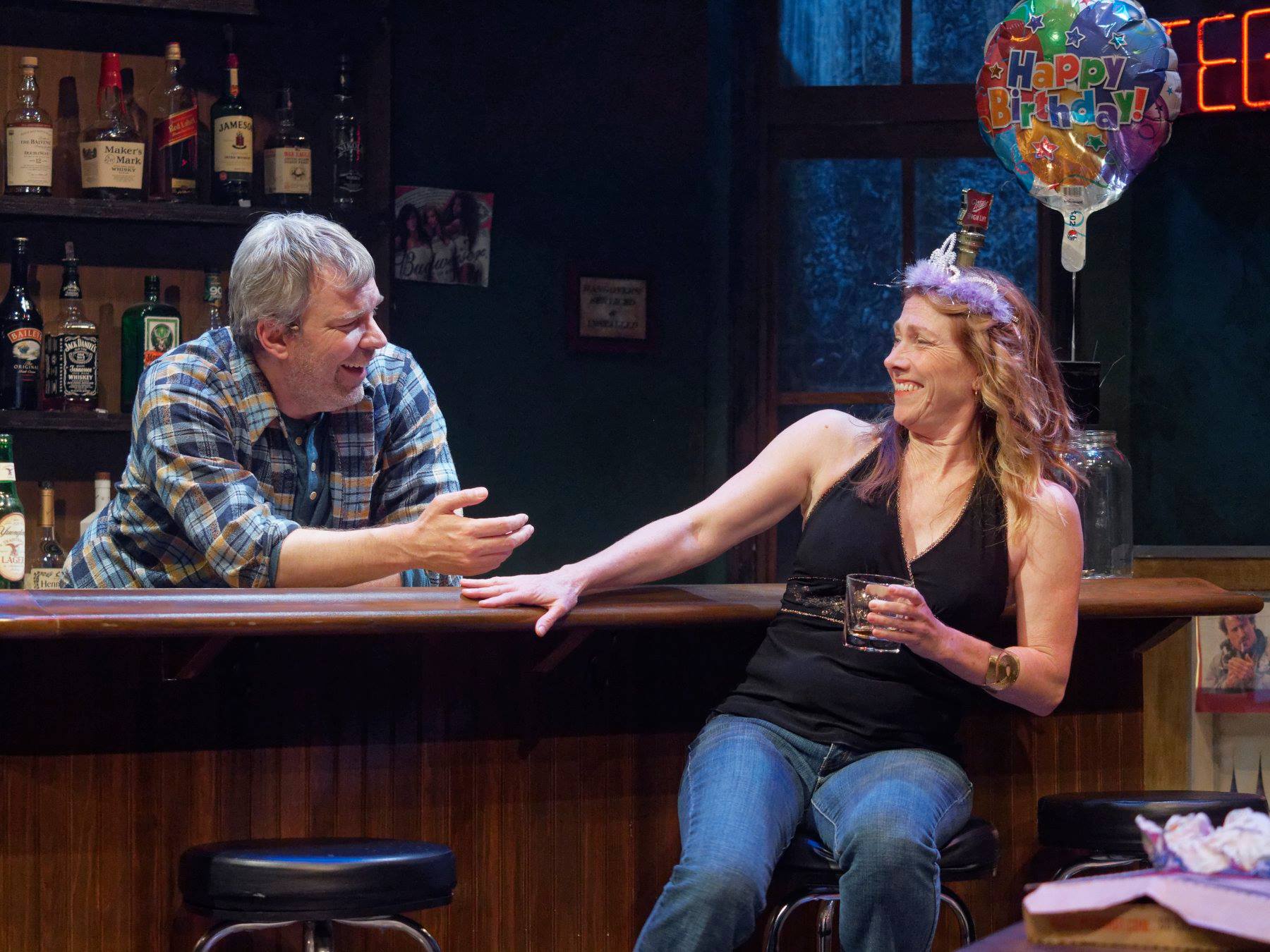
Acting is an exacting profession. It requires an artist to stand out by bringing their utmost truth to the surface in the present moment, and on demand. Theatre critic Helen Shaw describes the theatre making process as a wilderness, an ungoverned place where the rules constantly change, where danger is eminent, and where we need other humans to survive and thrive. This description resonates with me. To me, the practice of making theatre is a privilege: a practice of exploring my own wild human nature, of failing, telling the truth, and of becoming a wholehearted human being.
This presentation will focus on my process as an actor and theatre maker as I discuss the practical, physical, emotional, and spiritual work of an actor. What do actors do? Why do we choose to make ourselves vulnerable in our practice of public solitude? How do we build with others in the rehearsal process to create an experience of humanity that resonates for the audience?
I look forward to sharing an excerpt of my recent work with you and telling you about my relationship to the craft of acting and how it has called me to become a more courageous, honest and wholehearted person.
Fall 2019
More Than a Barmaid: Women in San Diego Brewing, 1868-Present
Speaker: Judith Downie, Special Collections and History Librarian
Date: Wednesday, October 16, 2019, from 5:00pm - 8:00pm
Location: McMahan House
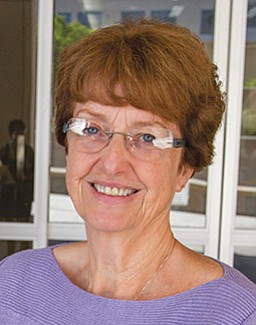
The focus of my presentation is San Diego beer industry with particular focus on the role of women in how the industry established, survived, and thrived. San Diego brewing history began in 1868 with two ‘dry’ periods (pun intended) due to national Prohibition and later to economic pressure from macro-breweries resulting in no local brewing for over 30 years in the mid-20th century. Now San Diego is a recognized epicenter of the craft beer industry, calling itself the ‘Capital of Craft’ with more craft breweries in the county than any comparable region in the US. How did we get there and how did women participate in the lifecycle of this industry?
Women’s roles from the beginning include business ownership, Temperance-driven political and social activism, Prohibition bootlegging, marketing and related businesses as well as purchasing and consuming. Increasing numbers of women throughout the industry today challenge the stereotyped industry image of ‘white guys with beards’. My research and publications in this area reflect the multi-disciplinary nature of our campus and instruction with special appeal to faculty in Business, History, Political Science, Chemistry, and Women’s Studies.
Spring 2019
The Role of Culture and Stress Biology on Perinatal Health Disparities: Mice to Mothers
Speaker: Kimberly D'Anna-Hernandez, Associate Professor, CHABSS, Psychology
Date: Tuesday, March 5, 2019, from 5:00pm - 8:00pm
Location: McMahan House
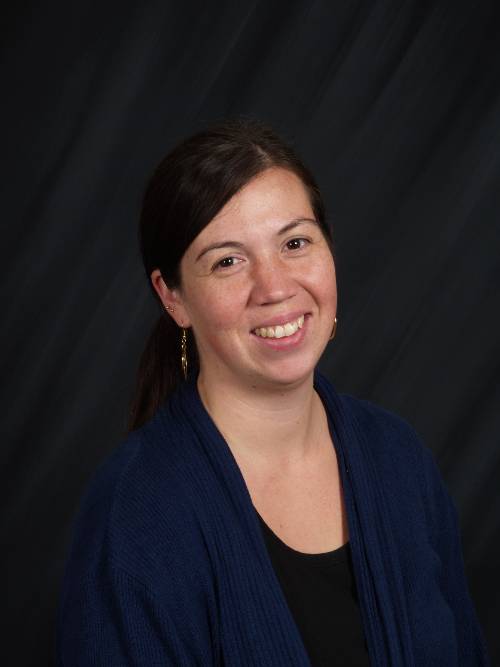
My work focuses on the impact of the prenatal environment on maternal health and developmental trajectories of offspring related to the depression risk in vulnerable populations. I do so in a translational research program that uses both behavioral and physiological measures in human and mouse models of maternal depression. My human work focuses on the role of sociocultural stressors in maternal/fetal programming of depression in the Mexican-American population. My work suggests that acculturation, the process of change in beliefs, values and behaviors following cultural contact, can negatively affect maternal salivary cortisol. These alterations in cortisol have adverse effects on the developing fetus (low birth weight and early gestational age). In addition, acculturative stress and discrimination uniquely contribute to maternal mental health symptoms during pregnancy with consequences for infant’s ability to regulate stress-related challenges postpartum. My mouse work models similar processes using the neuropeptide hypocretin to elucidate the role of arousal and stress-related peptides in postpartum depression and performance of maternal behavior in lactating dams. Together this work suggests maternal exposure to sociocultural stressors in the perinatal period may place Mexican-American mother/child dyads at risk for mental health disorders and alterations in stress biology.
Fall 2018
Chusb'al yold'al jaq' nimla tx'akab'e'n. Ti' unq'a tzaq'ite ve' At kan ta'n mam kuk'uy
lxil. Lingüística bajo las montañas: lo que los Maya lxhil nos pueden enseñar.
Linguistics under the mountains. What the lxhil Maya can teach us.
Speaker: Michael Hughes, Ph.D., Modern Language Studies
Date: Tuesday, November, 13, 2018, from 5:00pm - 8:00pm
Location: McMahan House
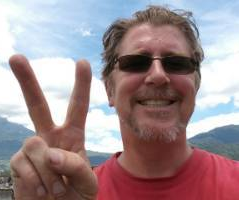
Of the approximately 7,000 languages spoken today, half will be extinct by 2100. Language extinction is driven by powerful forces external and internal to a community. External forces include globalization and economic pressures, lack of resources, national policies antagonistic to minority languages and communities, and educational systems that privilege the language of the capital. An important internal factor is the perceived status of the language by the community itself. In addition to facing all of these threats to language stability, the Ixhil Maya community was targeted for elimination during the genocidal practices of the Guatemalan Civil War and suffered a significant loss of its population. Today, many of the community’s youth leave to seek opportunity in the capital, or in the USA. We’ll discuss a multifaceted linguistic maintenance project undertaken in partnership with this community that seeks to address at least some of these issues. Working with adults of all ages, we are engaged in producing pedagogical and research grammars of Ixhil Maya, as well as other texts for Ixhiles which explore their own culture and customs. The data for the grammars comes from testimonials of the speakers’ civil war experiences and their narratives on, conversations about, and demonstrations of cultural and traditional practices. Younger community members contribute by transcribing and translating audio and video files, skills learned in the course of participation in CSUSM faculty development grants and two NSF granted projects. The goal for the community is to document their experiences and to use the materials they’ve produced in an expanded range of social situations in which the use of Ixhil Maya is not only socially accepted, but expected.
Spring 2018
Can Anybody Out There Hear Me? The Hidden Struggle of Young Caregivers
Speaker: Sharon B. Hamill, Ph.D., Psychology Professor, Faculty Director, CSU Institute
for Palliative Care
Date: Tuesday, April 17, 2018, from 5:00p.m. - 8:00p.m.
Location: McMahan House
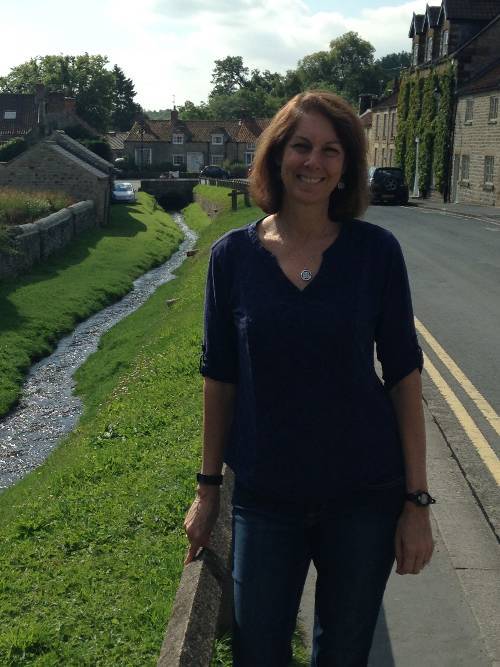
Each day, millions of US young people under the age of 18 provide care to physically or mentally ill family members. The aging of the US population, the increase in the number of grandparents raising grandchildren, and the prevalence of substance use/abuse have led to greater numbers of young people providing assistance to adults. However, they are doing so in the shadows. Young caregivers have largely been ignored in the US, leaving them vulnerable and ill-prepared to confront the issues inherent in illness and end-of-life care. But there is hope. Whereas my research on high school and college student caregivers has shown that caregiving is related to negative outcomes for mental health, academic achievement, and substance use, it also provides opportunities for growth when adults offer support. This presentation describes this research and the Youth Resiliency Project, a program designed to help peer counselors and school staff deliver the much-needed support these caregiving students -- and their families – need to thrive
Fall 2017
Apathy, Identity, Curiosity: Using Threshold Concepts to Understand Students
Speaker: Yvonne Meulemans, M.L.I.S.C. Head of Library Teaching and Learning, Libraria
Date: Wednesday, October 25, 2017, from 5:00p.m.-8:00p.m. Please RSVP by October 16th
Location: McMahan House

Threshold concepts are the fundamental ideas and habits of mind for scholars in any field of study. Without mastery of a field’s threshold concepts, students may disengage or approach their educational experience as an accumulation of facts and figures, and not with the curiosity we wish they would. Threshold concepts are often very difficult for novices (our students) to master and can challenge students’ identities and worldview, which can lead to apathy and resistance. Simultaneously, the threshold concept framework provides an approach to creating curriculum and in-class experiences that can help faculty support students through these learning struggles, master the foundation of a field, and ultimately, seek to pursue inquiry.As a librarian, I often work with students who are struggling to learn not only the fundamental concepts of their chosen field of study, but also how experts in their field actually ask and answer questions. My research centers on using the threshold concepts theory/framework to gain insight into undergraduates’ experiences as they move from novice towards developing expertise in a field. With such insight, I aim to better understand how to create curriculum and learning experiences that maintain engagement and cultivate curiosity in our students.
My research indicates this theory and framework shows strong promise in increasing and maintaining student engagement, and perhaps even provide a foundation for our students to become more engaged members of their communities. An emerging and very exciting area of focus for me is how the threshold concept framework can be used to create curriculum and learning experiences that are particularly impactful to students from underrepresented minority groups, first generation college students, and other non-traditional student populations.
Spring 2017
Prisms of Mourning: Gender, Justice and Hope
Speaker: Andrea Liss, Ph.D., Professor, CHABSS School of Arts
Date: Wednesday, April 19, 2017, from 5:00p.m.-8:00p.m. Please RSVP by April 5th
Location: McMahan House
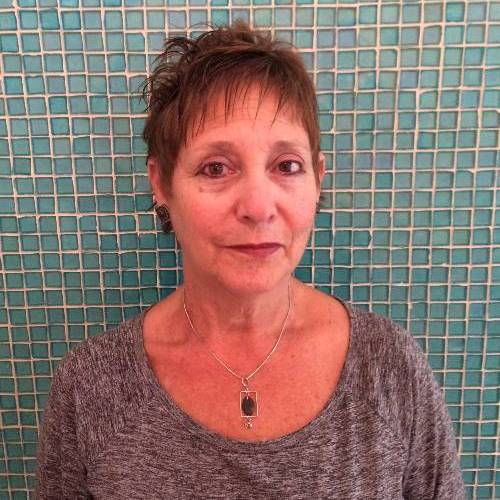
As a scholar and mother, the methodology I bring to my new project Maternal Ethics in Contemporary Art: Gender, Justice and Hope embraces and strategically reasserts traditional characteristics of the maternal, such as nurturance, empathy and caring -- qualities that have negatively defined mothers and all women as “sentimental” – and situates them anew as foundations for an ethics that radically reinterprets maternal traits as vital and healing forms of artistic and political address. This project significantly expands the concept of maternal ethics outside of the mother/child dyad and extends its nurturing force onto contemporary cultural issues that reside at the intersection of visual art and social justice. This presentation explores the possibilities that an ethics of the maternal holds for rethinking cultural and racial relationships based on love rather than on current forms of hate that alarmingly dominate contemporary national and global politics. I offer the readings of the artworks as talismans of hope and justice.Artist Carrie Mae Weems redefines the terms of documentary photographic practice in her piercing text and image installations that metaphorically address the current legacy of atrocities suffered by African Americans. Her articulate strategies uncover the derogatory intentions of name calling and turn these deadly abuses into the blessed connotations of naming. Weem’s exquisite portraits of children in the Colored People series, 1989-1990, bring into current focus resistant formations of facing, alterity and self-respect. These portraits echo the urgent call for intersubjective caring and thoughtful action called for by Black Lives Matter The Mothers of the Movement. The artist and the Mothers share productive affinities of maternal ethics that compel active imaginings of loving racial and gender relations, pointing to new geographies of gender, justice and tenderness.
Dr. Andrea Liss holds a Ph.D. in Art History and joined the CSUSM faculty in 1996. She teaches courses on feminist art and theory, photography and new documentary film. Her book Feminist Art and the Maternal (University of Minnesota Press, 2009) is critically noted as a pioneering book in the field of maternal studies. Her current work, Maternal Ethics in Contemporary Art: Gender, Justice and Hope, is concerned with maternal ethics, intergenerational memories, mourning and social justice. Related projects include “Maternal Aesthetics: The Surprise of the Real,” a guest curated issue of Studies in the Maternal and the exhibition Reel Mothers: Film, Video Art and the Maternal at the California Center for the Arts, Escondido. Her work also includes numerous book chapters, edited journals and exhibition catalog essays. Dr. Liss is also the author of Trespassing through Shadows: Memory, Photography and the Holocaust (University of Minnesota Press, 1999) and is a recent recipient of a Fulbright Scholar Award. Her son Miles’ sense of justice is a foundation for her work.
Fall 2016:
Dangerous Liaisons: Frontier Romances Past & Present & the Myth of America
Speaker: Rebecca M. Lush, Ph.D., Associate Professor
Date: Thursday, November 3, 2016, from 5:00p.m.-8:00p.m.
Location: McMahan House
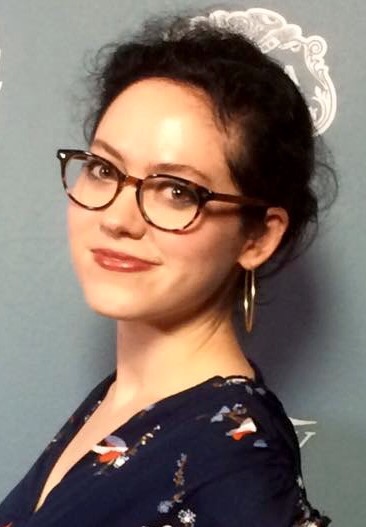
The frontier romance has long been a cornerstone of U.S. American literature, creating a mythical and foundational story that imagined the new nation as a place of wonder, adventure, and danger. Historically, this literary genre has told a very limited story from a privileged perspective, in the process creating narratives of exclusion. However, contemporary literature that focuses on a more modern and fantastical frontier space, known as the “weird west,” has opened up new avenues for the representation of communities that had been historically excluded or maligned in earlier frontier literature. This talk will examine the titular characters from Buffy the Vampire Slayer and Wynonna Earp (both the comic books and television series) to explore how popular and modern iterations of the American frontier showcase women as the replacement for the archetypal wilderness frontiersman and how violence and romance are used to challenge, yet also reinforce, traditional paradigms of difference and “othering.”
Rebecca M. Lush holds a Ph.D. in early American literature and joined the CSUSM faculty in Fall 2011. She teaches courses on early American literature, Native American literatures, folklore, Gothic/Horror studies, and film. Her research primarily examines contemporary Native American literature and the representation of Native peoples in American literature. She also studies Horror works with an eye towards how they intersect with studies of the American West and frontier. Her past publications include articles and chapters on literary authors as wide-ranging as James Fenimore Cooper, Gerald Vizenor, Aphra Behn, and Stephen Graham Jones. She is currently completing an NEH-funded book project on the writings of Margaret Fell with co-editor Jane Donawerth. She serves on the Executive Council for the Western Literature Association and is known for her love of cats.
Spring 2016:
Speaker: Paul Stuhr, Ph.D., Associate Professor, Kinesiology
Title: "Adventure-based Learning: Transcending the Communal Experience in Education for Social-Emotional
Growth"
Date: Wednesday, March 2, 2016, from 5:00p.m.-8:00p.m.
Location: McMahan House
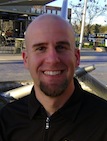
For the past seven years I have been researching and publishing on a curriculum model called Adventure-based Learning (ABL). This data-driven curriculum consists of highly structured physical activities (i.e., teambuilding experiences) with periods of reflection (i.e., debrief) that help promote social and emotional learning (SEL) of the participants. I am an avid proponent of using ABL within physical education and K-12 schools in general, to foster positive intrapersonal and interpersonal relationships. Yet, the versatility of this curriculum and its focus on enhancing SEL makes it excellent content for any program looking to enhance participant relationships (e.g., community, cooperation, communication, trust, and problem solving).
The debrief in ABL is the primary reflective component used in order to produce transfer (i.e., application outside the classroom) of the relationship skills. The student-centered debrief provides opportunity to construct meaning from the experiential experiences through a tactical and structured discussion. My colleagues and I have created and tested the credibility of a reflective tool we use in the ABL debrief called the Sunday Afternoon Drive Model. This model is used throughout this research line as a means to enhance and transfer the SEL outcomes of the participants to other areas of their lives.
Empirical evidence suggests that ABL can promote collaborative and supportive learning communities that foster SEL (Stuhr & Sutherland, 2013; Stuhr, Sutherland, Ressler, & Ortiz-Stuhr, 2015). Yet, our knowledge regarding (a) K-12 school children learning outcomes with this curricular, and (b) how best to train teachers to deliver this content is limited, reflected by a paucity of research in this area (Sutherland & Stuhr, 2014; Sutherland, Stuhr, & Ayvazo, 2014). To that end, I continue to seek answers to the following two questions: What types of SEL can be produced, documented, and transferred through an ABL unit of instruction? And, how can teacher educators best prepare pre-service and novice teachers to deliver an effective ABL unit within K-12?
Fall 2015:
Motivation Matters: Creating Contexts That Support Adolescent Education
Speaker: Erika Daniels, Ed.D., Associate Professor
Date: Thursday, Ocotober 29, 2015, from 5:00p.m.-8:00p.m. Please RSVP by October 22nd.
Location: McMahan House
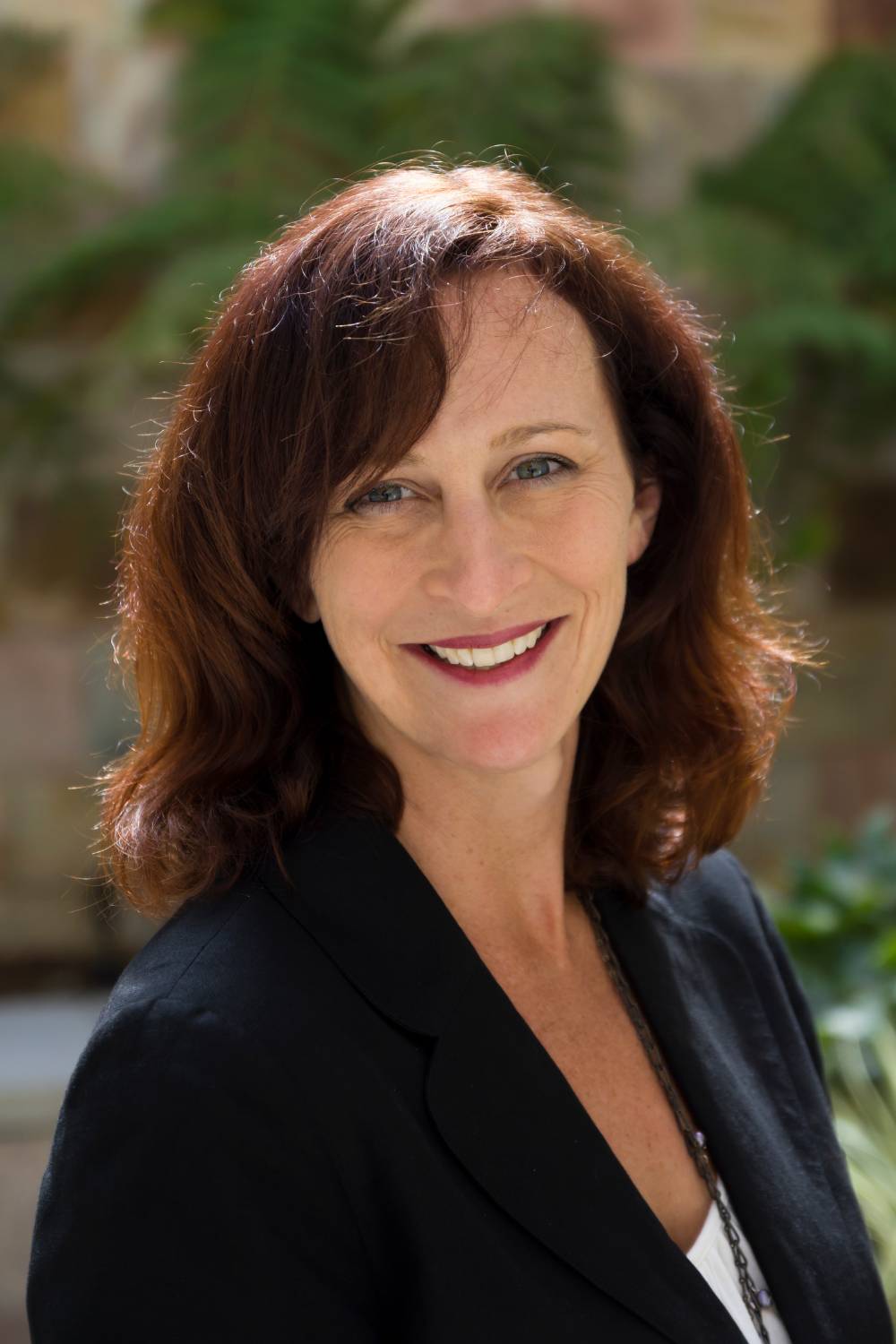
Anyone who has spent time in a middle school classroom and/or with young adolescents knows that they can be quirky, funny, maddening, and articulate—often all in the space of one conversation. Middle school students are at a unique stage in their cognitive, social, and emotional development that causes them to swing between being thoughtful, mature, and inquisitive to impetuous, child-like, and angst-ridden. Although middle school educators spend countless hours discussing ways to support and motivate their students, many of these discussions focus on suggestions that come from research and books written by adults for adults. If we are to truly make a difference in the lives of our disengaged adolescents, it is imperative that we also focus on the students themselves to determine what they think, need, and feel about their motivation to achieve academically.
While motivation is internally generated, it is also heavily influenced by the contexts in which individuals function. This is good news for educators and parents because it means that we can have an impact on whether and how our students and children are motivated to exert effort in school. Research also tells us that intrinsic drives to achieve and extrinsic desires to act sometimes appear to be disparate but are actually closely connected. It is therefore worth the effort to not only consider how each influences the other but also to explore what the adolescents with whom we work think and feel as it relates to their motivation.We can learn a lot from our young adolescents. It is up to us to listen.
Spring 2015
Technology in the classroom: Salvation or Abomination?
Speaker: Edward Price, Ph.D., Associate Professor, Physics Department Chair
Date: Thursday, April 9, 2015, from 5:00p.m.-8:00p.m.
Location: McMahan House
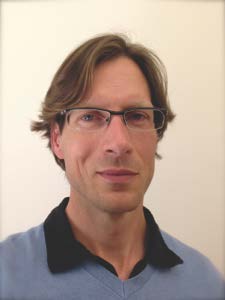
Classroom technology will save and/or ruin us, depending on whom you believe. The reality, in my experience, is more nuanced. My research explores how technology transforms learning in physics classrooms on multiple scales, from individual students reasoning with diagrams and drawings, to web-based systems where students grade each other’s written work, to polling systems that reorganize the classroom’s social structure. I will present data showing how these technologies facilitate learning through their impact on the social and cultural aspects of the classroom.
Fall 2014
The Pan Genome of Emiliania Huxleyi and the Hunt for Biomineralization Genes and Proteins
Speaker: Betsy Read, Ed.D. Professor, Molecular Cell Biology
Date: Wednesday, November 12, 2014 from 5:00p.m.-8:00p.m.
Location: McMahan House
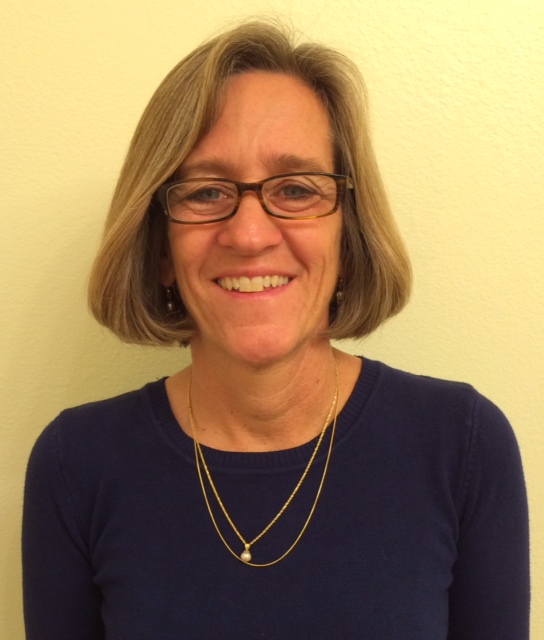
Betsy Read is a Professor in the Department of Biological Sciences and is the Director
of the Professional Masters Degree Program in Biotechnology. She teaches courses
in Molecular Cell Biology, Genomics and RNA Technologies, Bioinformatics, and Cellular
Biotechnology. For her research and teaching as two sides of the same coin. She relishes
the opportunity, whether in the classroom or in the laboratory, to engage students
in the innate creativity of science, the thrill of discovery, and the joy of seeking
answers to explain the wonders of the natural world.
According to Betsy coccolithophorids are “flowers of the ocean”. Captured by their
intrinsic beauty and spectacular morphological diversity, she seeks to unravel the
molecular underpinnings governing the nanoscale shape and patterning of the calcium
carbon cell coverings that distinguish these extraordinary phytoplankton. Recently,
Betsy and a consortium of 75 scientists from 12 nations sequenced and published the
genome of the ubiquitous, and most prominent coccolithophorid, Emiliania huxleyi.
Decoding the genome and its 30,000 genes provides a blueprint that will define research
conducted with E. huxleyi for the coming decades; enabling scientists to achieve a
complete understanding of the remarkable ecological success of this tiny microcalcifier,
and the impact it may have the environment and society. This talk describes the pan
genome of E. huxleyi and the hunt for biomineralization genes and proteins in these
important marine algae.
Spring 2014
How I Fell in Love (with Bioethics)
Speaker: Michael McDuffie, Ph.D. Associate Professor, Philosophy
Date: Thursday, April 10, 2014 from 5:00 - 8:00 p.m.
Location: McMahan House
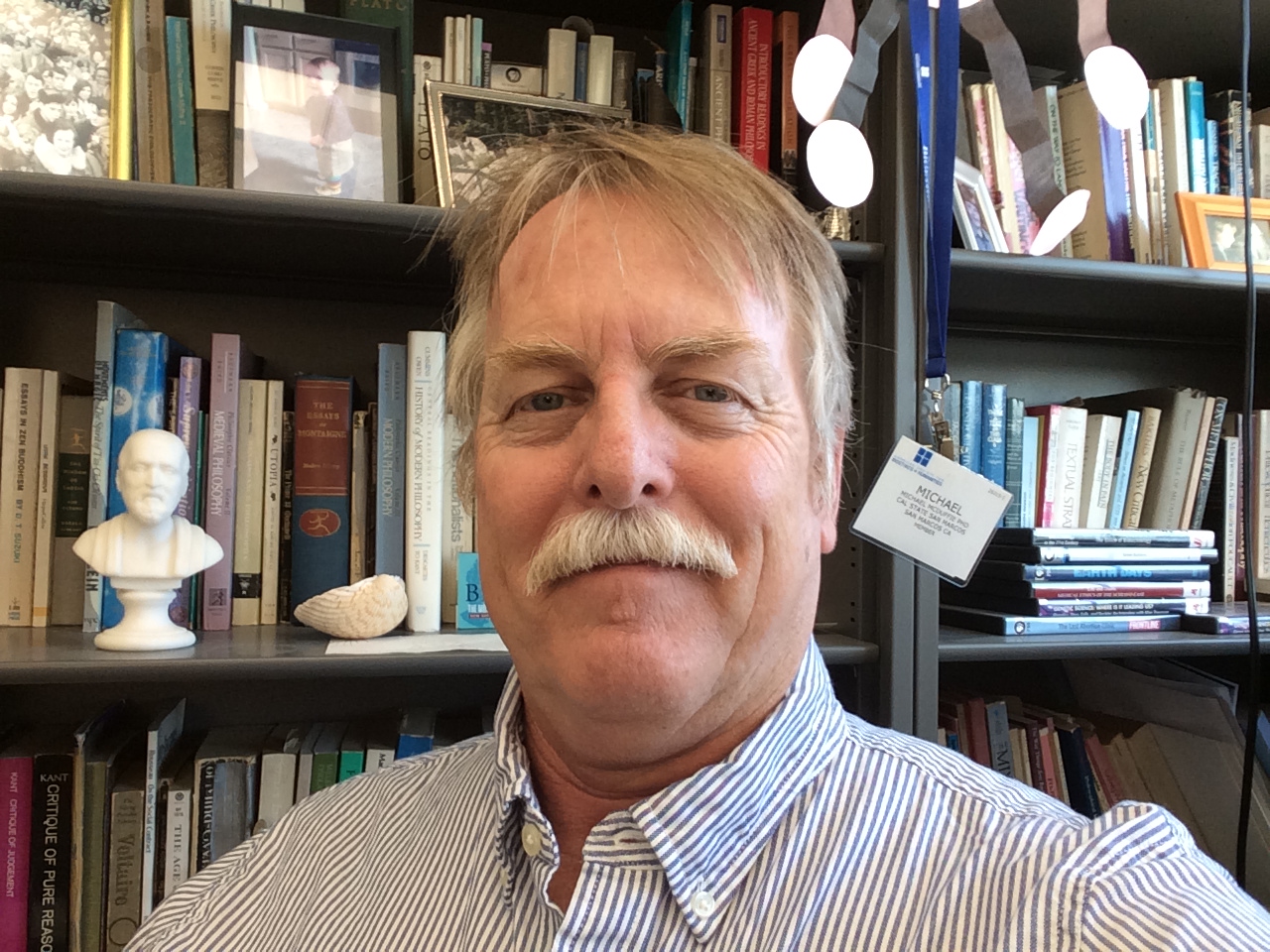
In recent years, I have taken up bioethics and medical ethics as my primary research and teaching specialty. Bioethics examines the ethics of bioscientific research and the application of scientific knowledge in fields like medicine, nursing, and biotechnology. Bioethics includes clinical ethics, as a subfield of practical and professional ethics. I did not start my career with this specialty. My interest emerged from the personal journey that my family undertook when our first child was born with a serious congenital heart defect, requiring three open-heart surgeries in the first two years of his life. That journey is long over now, for the most part, and we made it safely home: Our son is almost twelve, and he enjoys a normal life, him and his scooter and his crazy reconstructed heart. Still, the experience upended my career, took me out of the classroom for several years, and transformed my interior landscape as a thinker, philosophy student, and teacher. I fell in deep for bioethics: the only thing to think about, at the end of that journey. When I returned to teaching, I focused on nurse education, teaching medical ethics, trying to convey to my students the immeasurable human impact of effective medical and nursing care. As I took on a multidisciplinary teaching literature, in philosophy, medicine, and law, my research interests turned more and more to matters of medical and nursing practice. I found my way back to the relevant aspects of my early philosophical education, as a student of the mind-body problem. Working on very basic problems of consciousness and the phenomenology of perception, I had taken classes in the philosophy of psychiatry and philosophy of medicine. These old lessons gained new relevance, grounding my orientation as a teacher, scholar, and community member of a local hospital ethics committee, IRB, and palliative care committee. Nowadays, my research is focused on different aspects of medical decision-making, particularly at the end of life a primary focus of clinical ethics. Themes include: concepts of patient competence and decisional capacity; issues in the ethics of organ donation; the operative role of concepts of moral authority and moral permission; philosophical debates over the clinical and legal definition of death; and basic considerations of the goals and duties of medical care, both curative and palliative. I'm really excited by the work that I'm doing now, and I look forward to sharing some stories at the Dinner. (The main story is a love story, and it has a happy ending.)
Fall 2013
Transcending Gangs: Latinas Story Their Experience
Speaker: Liliana Castañeda Rossmann, Ph.D. Professor, Communication
Date: Wednesday, November 6, 2013 from 5:00 - 8:00 p.m.
Location: McMahan House

Liliana Castañeda Rossmann’s research theorizes on how humans co-create and maintain their identities by telling stories. In particular, the stories of gang-involved Latinas have significant implications for transcending their gang experiences. Gangs offer women opportunities for leadership which would be unattainable otherwise. Yet, these leadership skills are hard-earned and, paradoxically, may marginalize them further once they leave the gang lifestyle. What works to help them get out? What works to keep them from getting involved in the first place? Drawing from an eclectic array of approaches, Rossmann makes suggestions to provide young Latinas with viable options to transcend the gang.






